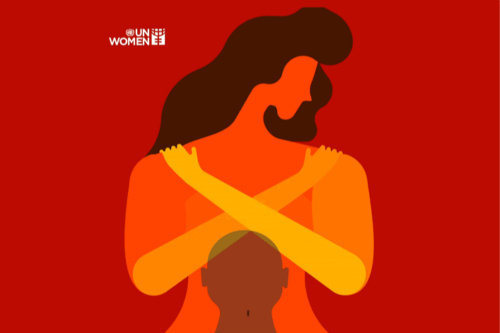
UN Women Executive Director Phumzile Mlambo-Ngcuka’s Statement for the International Day for the Elimination of Violence Against Women 文章源自英文巴士-https://www.en84.com/8294.html
联合国妇女署执行主任普姆齐莱·姆兰博-恩格库卡制止暴力侵害妇女行为国际日致辞文章源自英文巴士-https://www.en84.com/8294.html
文章源自英文巴士-https://www.en84.com/8294.html
End rape – an intolerable cost to society文章源自英文巴士-https://www.en84.com/8294.html
终结强奸现象——这一社会无法承受的代价文章源自英文巴士-https://www.en84.com/8294.html
文章源自英文巴士-https://www.en84.com/8294.html
25 November 2019文章源自英文巴士-https://www.en84.com/8294.html
2019年11月25日文章源自英文巴士-https://www.en84.com/8294.html
文章源自英文巴士-https://www.en84.com/8294.html
If I could have one wish granted, it might well be a total end to rape. That means a significant weapon of war gone from the arsenal of conflict, the absence of a daily risk assessment for girls and women in public and private spaces, the removal of a violent assertion of power, and a far-reaching shift for our society.文章源自英文巴士-https://www.en84.com/8294.html
如果我能实现一个愿望,那很可能是彻底终结强奸现象。这意味着冲突武器库的一件重要战争武器消失了,不再需要对公共和私人空间中女童和妇女的日常风险进行评估,消除了对权力的粗暴宣示,社会因此而改变。强奸并非孤立的短暂行为。
Rape isn’t an isolated brief act. It damages flesh and reverberates in memory. It can have life changing, unchosen results – a pregnancy or a transmitted disease. Its long-lasting, devastating effects reach others: family, friends, partners and colleagues. In both conflict and in peace it shapes women’s decisions to move from communities through fear of attack or the stigma for survivors. Women and girls fleeing their homes as refugees also risk unsafe transport and insecure living conditions that can lack locked doors, adequate lighting and proper sanitation facilities. Girls married as children in search of increased security at home or in refugee camps can get caught up in legitimized conditions of rape, with little recourse for those wishing to escape, such as shelter and safe accommodation.
强奸在对肉体造成伤害的同时,会长期折磨人的精神。强奸会改变人生,导致被害人不情愿的结果——怀孕或传播疾病。强奸的长期破坏性影响会波及到受害者以外的其他人:家人、朋友、伴侣和同事。无论是冲突时期,还是和平年代,强奸给妇女造成的恐惧与羞辱迫使受经历者下决心搬离所在社区。作为难民逃离家园的妇女和女童面临着不安全的交通和生活条件,例如无法锁门、没有充足照明、缺乏适当卫生设施。女童因期望能从家庭或难民营获得更多安全保障而早早结婚,但等待她们的可能是披着合法外衣的强奸,即便想逃离也难有诸如避难所和安全住所等帮助。
In the vast majority of countries, adolescent girls are most at risk of sexual violence from a current or former husband, partner or boyfriend. As we know from our work on other forms of violence, home is not a safe place for millions of women and girls.
在绝大多数国家,少女最容易受到现任或前任丈夫、伴侣或男友的性暴力侵害。正如我们从对其他形式暴力的研究所示,对于数百万妇女和女童来说,家庭并非一个安全之所。
Almost universally, most perpetrators of rape go unreported or unpunished. For women to report in the first place requires a great deal of resilience to re-live the attack, a certain amount of knowledge of where to go, and a degree of confidence in the responsiveness of the services sought – if indeed there are services available to go to. In many countries, women know that they are overwhelmingly more likely to be blamed than believed when they report sexual assault, and they have to cope with an unwarranted sense of shame. The result of these aspects is a stifling of women’s voices around rape, significant under-reporting and continuing impunity for perpetrators. Research shows that only a small fraction of adolescent girls who experience forced sex seek professional help. And less than 10 per cent of women who did seek help after experiencing violence contacted the police.
十分普遍的情况是,大多数强奸者都没被揭露或受到惩罚。对于妇女来说,要报告强奸,首先心理要强大到能够复现强奸过程,需要知道能向哪里求助,以及对所寻求的服务(如果确有可以求助的服务的话)会怎么做出响应得一定信心。在许多国家,妇女知道,当报案性侵犯时,人们很可能不但不相信她们,还会指责她们,因此不得不应对一种不必要的羞耻感。上述种种原因压制了妇女就强奸发出的声音,导致严重报案不足,让犯罪者继续逍遥法外。研究表明,仅一小部分经历过性强迫的少女会寻求专业帮助。在经历暴力后寻求帮助的妇女中,仅不到10%的人联系警察。
One positive step to increase accountability is to make rape universally illegal. Currently more than half of all countries do not yet have laws that explicitly criminalize marital rape or that are based on the principle of consent. Along with criminalizing rape, we need to get much, much better at putting the victim at the centre of response and holding rapists to account. This means strengthening the capacity of law enforcement officials to investigate these crimes and supporting survivors through the criminal justice process, with access to legal aid, police and justice services as well as health and social services, especially for women who are most marginalized.
加强问责的一个积极步骤是普遍地将强奸定为非法行为。目前,一半以上的国家还没有明确将婚内强奸定为犯罪的法律或基于同意原则的法律。除了将强奸定为犯罪,我们还需要更好地将受害者置于应对措施的中心,并追究强奸犯的责任。这意味着加强执法官员调查这些罪行的能力,并通过刑事司法程序支持经历者,特别是让最边缘化的妇女获得法律援助、警察和司法服务以及卫生和社会服务。
Having more women in police forces and training them adequately is a crucial first step in ensuring that survivors begin to trust again and feel that their complaint is being taken seriously at every stage of what can be a complex process. Progress also requires that we successfully tackle the many institutional and structural barriers, patriarchal systems and negative stereotyping around gender that exist in security, police and judicial institutions, as they do in other institutions.
让更多的妇女加入警察部队并对她们进行充分培训,是确保经历者重新开始信任并感到自己提出的问题在这一复杂过程的每个阶段都会得到认真对待的关键第一步。要取得进展,还需要我们像在其他体系中一样,成功解决许多体制和结构障碍、家长制及安全、警察和司法机构中关于性别的负面刻板印象。
Those who use rape as a weapon know just how powerfully it traumatizes and how it suppresses voice and agency. This is an intolerable cost to society. No further generations must struggle to cope with a legacy of violation.
那些把强奸作为武器的人知道强奸在制造精神创伤方面威力有多强大,以及能如何有效地压制发声和反抗。这对社会来说是无法承受的代价。不能让我们的后代再艰难地与这一历史遗存罪行作斗争。
We are Generation Equality and we will end rape!
我们是平等一代,强奸应当被终结。

